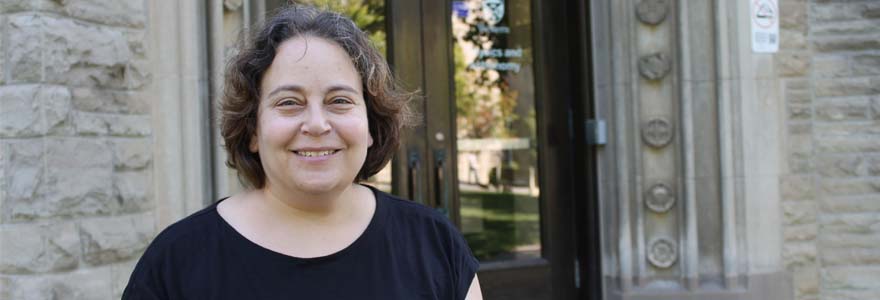News and Updates
Contact
Faculty of Social Science
Social Science Centre
Room 9438
Western University
T. 519-661-2053
F. 519-661-3868
E. social-science@uwo.ca
Supporting mutual care relationships
July 25, 2022
Story and photo by Rob Rombouts
When a sibling of a disabled or autistic person becomes a primary caregiver, the shift can be overwhelming. In Canada, there are few resources available to support this transition.
With support from the Canadian Centre for Caregiving Excellence (CCCE) and Siblings Canada, a research team from Western University will complete a project to better understand this period of change and how it impacts the mutual care relationships between siblings. The purpose of this project is to learn about the experiences of the siblings and how they imagine their futures together by highlighting recurring themes and shared values. The project has received a Partnership Engage grant from SSHRC, which has been matched by the CCCE.
Pamela Block, professor in the Department of Anthropology and, and Gerald McKinley, professor in Public Health with the Schulich School of Medicine & Dentistry are co-investigators on the project.
The researchers plan to interview disabled and non-disabled siblings who are in care relationships. Through the interviews, they want to determine family dynamics, as well as the types of support available to siblings providing economic support or those who are unable to work due to caregiving.
“People have generally looked at the “burden” of care for the non-disabled person, but care can be reciprocal, it is a relationship of care” said Block. “We won’t automatically assume care is a burden or uni-directional as if one person only gives and the other person only receives.”
As parental primary caregivers age and pass way, there is an assumption that other family members will automatically step in to take on the role.
“It is expected that if a sibling is employed in the workforce, they may have to leave the workforce to care for their sibling,” said Block. “Future planning to budget for ongoing financial support is not something that is possible for every family. Even if you don’t have the financial resources to do this, the expectation is that it’s up to you to make it work somehow.”
The researchers plan to interview people from across Canada, and in diverse communities and backgrounds to get a wide understand of how needs and supports vary in different communities.
To ensure proper levels of care and support, ‘it all comes down to money: money that can pay for support workers, or money to enable siblings to leave the paid workforce in order to provide care themselves,” said Block.
Siblings Canada is collaborating with the project, will help recruit interview participants, and disseminate the results. Following the first phase of the study, Block can foresee policy implications.
“It is a priority of our partners Siblings Canada and the Centre for Caregiving Excellence to develop a policy agenda to improve the quality of life of disabled people, and those supporting them, and we hope this research will help them.”

